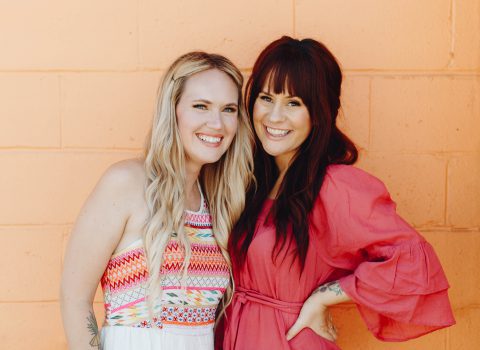 I didn’t realize it until the past few years, but I actually had some pretty unhealthy perspectives about money. Like anything else in life, it was worth looking into and the deeper I began to look, the more I realized that my own thoughts about money were holding me back. This is a pretty personal topic, and not one that is easy for me to talk about publicly. But today I am diving into it because some of these new perspectives really changed my life.
I didn’t realize it until the past few years, but I actually had some pretty unhealthy perspectives about money. Like anything else in life, it was worth looking into and the deeper I began to look, the more I realized that my own thoughts about money were holding me back. This is a pretty personal topic, and not one that is easy for me to talk about publicly. But today I am diving into it because some of these new perspectives really changed my life.
(Disclaimer: This is my advice based on my experience. If your experience is different, that does not mean I am disagreeing with you and I would love to hear your perspective in the comments. I’m only one person with one perspective and set of life experiences.)
Here are some things that were holding me back and how I changed my mind about them over time:
-Timelines
A lot of people I know seem to freak out when they turn 30 and haven’t achieved financial goals they thought they would by that time. Or worse, turn 40 and realize they should have started a retirement account in their 20s. There is SO much pressure attached to money and so much shame. It took me a while to realize that I was tying money to my self esteem. I never thought of myself as a person who cared anything about money. But all the sudden, here I was in my 30s, starting to panic about how I needed to “catch up.”
The truth is, we’re not all going to be wealthy, or even comfortable, by the time we turn 30. Sometimes we don’t start our retirement account until WAY later than you’re supposed to. No matter how organized and devoted you are to your financial plan, there will always be a bigger goal that is just out of reach.
What I learned is to be gracious with myself. I learned to look forward and not back. And most importantly, I learned to adjust my expectations a little bit. I am not a “money person,” but I’ve learned to not use that as an excuse. For the past few years, I’ve been doing one financial goal at a time and it’s made a big difference, but it did take time. Most big money goals take years of consistency and you can’t fast track that.
My best advice is to worry about whether or not you are headed in the right direction, not when you will arrive at your ultimate goal.
If you wish you had a time machine to join your company retirement plan five or 10 years ago, I encourage you to forget about the time machine and join the plan this week!
-Comparison
Comparison can be so toxic, especially in a social media age where it’s all Gucci bags and marble kitchens and stuff, stuff, stuff, all day, every day. The truth is that comparison is an unhealthy mind space and so much of the time it isn’t even real.
I know everyone talks about not comparing, but it is still tough to actually not do it.
When you feel tempted to compare your life to someone on a screen, remember that you have no idea what their actual financial situation is. And you don’t need to know (it’s none of your business). Just because you see something pretty does not give you permission to put your own situation down. Comparison is so toxic. You deserve better.
Instead, you need to worry about is whether or not you are satisfied with how you use the money you earn. That’s all that matters!
-Frugality without a purpose
Money guilt. I was raised without a lot of money. In my early 20s, I was so poor I could barely afford basic things like a small apartment and groceries. I read a ton of Dave Ramsey books, and at the time they helped me so much because I had some debt, I had no emergency fund and I was living paycheck to paycheck.
As the years went by, I began earning more money, and I increased my spending in some areas (hello eating at restaurants basically every night until we had kids—haha), but I kept the guilt in other areas. I felt that it was bad if I spent more on groceries, clothing and some other random areas. I felt guilty every time I spent money on certain things, but not others, and there was no real reason why.
More recently after I read I Will Teach You To Be Rich (of which I am now a superfan), I took the time to define my own “rich life” and reworked our family budget. It’s so funny, but my spending habits are basically opposite now of what they were for the 10 years prior. We spend unlimited on groceries because we love to cook at home and we rarely eat out. We go to Disney parks pretty often, but we don’t buy our kids toys when we go to Target. Big picture—we picked what matters to us and we spend our money on those things without guilt. It’s so freeing.
Now that we have defined our values for money I never feel guilty spending. It’s the best feeling. Now I understand that money is just there to help you live your life—not something to tie you down or make you feel bad. Money does not make you a good person or a bad person. It’s just money.
-Cliche advice
This one is so huge for me! Some money advice will apply to you and some just will not. That is normal and it’s good to know what works for you and aligns with your values and then when it doesn’t you can just skip it!
There is so much money advice that I totally ignore now. For example, I always felt guilty my ENTIRE life for not having an intricate budget. But now we don’t have a budget because we don’t really need one. We have goals, we check in with each other before we make larger purchases and we know what we are saving up for and we spend relatively the same amount of money every month on daily life. NBD! I can finally stop feeling guilty for not having a spreadsheet of every single expense divided by category because, big picture, we know we are OK with the money we spend.
This may mean something different for you, but you don’t have to use money advice if it doesn’t serve you.
-Trying to make money “fun”
This one is big for my enneagram 7 personality. For years, I resisted doing boring investments and that’s why we have several bnb properties and I thought we could just keep doing and doing and doing them … until we couldn’t anymore. Recently, I realized we don’t have capacity (AT ALL) to keep doing bnb properties on that pace (there is a lot of behind the scenes you don’t see that is WAY more boring than room makeovers).
Recently, I realized that with two little kids and a job I love with all my heart, all I really have time for in the next few years is boring investments. And guess what—THAT IS OK. Money does not have to be fun. This was such a big turning point for me. I’m so glad I could remove some pressure for now.
Boring money stuff like saving, retirement accounts, investing in stocks and bonds, paying down a mortgage … these things matter too! They are not fun and exciting, but they can really pay off for your future quality of life.
I hope this has been helpful for someone! Money isn’t the easiest subject to talk about, but I’m so glad I took some time to rework my thinking to make it a more positive and empowering subject in my life. 🙂 xx- Elsie
Ps- My piggy bank is from here.




25 Comments
Ah, thank you so much for sharing! I really love hearing your thoughts and perspective. Money can be such a tough topic to share about but it’s so important! ????
I really enjoyed this article! Thank you for your transparency and honesty. My best friend has a spreadsheet for every penny she spends. I’ve never been able to do that and had a lot of guilt about it. I’m going to let go of that expectation for myself. Thank you 🙂
This spoke to me so much! I have constant guilt/stress about money, from past experience, living alone in my early 20’s living paycheck to paycheck, barely scraping by- although now my family is so lucky to live comfortably. I am constantly looking into budgeting styles that will make sense for us, and none have stuck. I will have to read I Will Teach You To Be Rich and see if it helps with my strained relationship with money. Thanks for the suggestion????.
Yay! I hope it helps!! 🙂
I need to take your advice on timelines! I set deadlines and it puts great pressure on me…
Charmaine Ng | Architecture & Lifestyle Blog
http://charmainenyw.com
Just wanted to thank you for writing this. It’s hard to talk about, but so helpful. I’m going to take on some of your tips!!
Ah money! I hate it and I love it. I grew up without much money raised by a single mom. However she loved the idea of a great education and the finer things in life so she always cooked everything from scratch but always trying new stuff from around the world and she sent me to the best schools so that I would be someone. She was good with budgeting and by the time I was a teenager, we lived in a very nice neighbourhood and had great stuff but never lived above our means. When I left, I had expectations which didn’t align with what I was making. And I basically lived the life I had…….on the much smaller income of a 20 year old just starting out in life. I made bad decisions, i spent way above my means and i did this for years and years. Now I’m 33, my salary has caught up with me…….but I have an enormous amount of debt I need to account for now. I’ve learned the hard way and am now paying the price so my advice, do have fun, mistakes are common but don’t live above your means for years. You’ll pay for it in the long run.
The biggest game changer for me re: money is automating as much as possible. I set up my bank account to put aside savings and pay bills automatically. It takes the guess work out of it, and allows me to understand what’s left for me (after accounting for my savings goals) to spend on groceries and misc. purchases guilt free.
This was so helpful to hear from a fellow 7 on the enneagram. I recently listened to another podcast that mentioned you were a 7, and immediately I wondered how this topic was for you, since I have always struggled with my relationship/view of money. I relate to all of this so much and thank you so much for sharing advice in each area!
Great perspective. I’m quite a bit older than you and it’s so nice to see how you have matured through the years.
Thank you so much for this post! I just turned 30 and really needed to hear (well, read) something like this!
Honestly I found this post a bit hard to swallow given the timing. I’m sure it was, perhaps, written before the pandemic tanked the U.S. economy but the reality is that yesterday–April 1st–families and businesses across the country struggled with paying rent or mortgages. Money isn’t going to be fun for the foreseeable future.
@ V…. I mean, that was the point of the article, right? That money doesn’t always need to be fun? I think the rest of the points still apply too (e.g. no doubt our savings timelines will be thrown off kilter for the foreseeable future).
Hi! I wrote this post more than a month ago, yes. I definitely did not write it specifically from a pandemic perspective, and I hope it doesn’t come across in an insensitive way- although so many things do right now, and I understand that… it’s a very challenging time. We’re doing our best and your constructive feedback is welcome. 🙂
I so feel you on this, even though I had the opposite reaction.
I thought “I’m SO GLAD to read something not about the Coronoavirus”. I just can’t read any more pieces about being “productive at home”, it’s so hard to just deal with everything as is. So anything other than Corona news for me, really. I guess I just tried to look at this completely removed from current events.
But I completely understand where you’re coming from. Money anxiety on top of everything-else-anxiety really is just awful.
Great post Elsie! Thank you for your openness and transparency around a subject that can be so sensitive.
Thanks for writing out your thoughts on this, very interesting! I also appreciated when you mentioned on the podcast that wanting to earn money and be comfortable is not a bad thing and doesn’t make you a bad person. Indeed we can all benefit from seeing it as an empowering tool.
Stay healthy out there xo
Thank you so much for sharing this Elsie! Money talk can feel so taboo, but it’s important for us all to have healthy relationships in our lives, including our relationship with money! Love your perspective, it resonates!
Great post, Elsie. I call it the ‘M’ word, since it’s considered uncouth by some, to talk about. Yet, it’s of primary importance and a huge learning curve in our 20’s and 30’s. I’ve been through divorce so had to learn lessons again in my 40’s. How it’s tied up in our self esteem is crucial in learning to manage it. I can relate to the majority of what you’ve shared.
I loved reading this, Elsie! It’s almost cathartic to think about the bigger, long term picture during this time. I remembered this difficult situation is temporary (as someone fortunately working from home but worried about the future of my job) and I can still give thought to my long term goals, even though the road seems blocked or diverted right now. I really appreciate your perspective and advice!
Thanks Elsie for this beautiful reading. I’m about to turn 26,what I liked is comparison.wow I always do compare my self to what I watch especially in movies yet in actual sense I can’t have it. “luxury ” I love it but I have to work hard to find it thou that money is very hard to get with my low income. I ve learnt to let go for What I can’t have. Thank you
Thank you, Elsie, this is a tough thing to talk about but SO important! We all need and use money. I’ve been doing a lot of work around this myself, uncovering and re-writing icky personal “truths” about money. It’s so worth it. It can be an amazing tool for individual happiness, but also social change: just imagine if all the amazing people in our lives were rich! What a better place this would be. Thank you for being brave and starting this conversation with your readers.
Great advice and observations! I love personal finance and have always been strict with a budget and tracking but with plenty of resources, I have often had a scarcity mindset about buying things I actually need (while spending freely on vacations). Having some patience with yourself and acknowledging your growth mindset are key to long-term financial happiness. Looking forward to checking out that book too – thanks!
Fabulous! Thank you so much for sharing – so many things to think about, but all in a good way! 🙂
I did not like the comparison section. I understand your point about protecting your own state of mind by not comparing to others, but stop asking people poorer than you to just accept their situation and stop asking important questions. Why do people need to be framed as unmannered when we compare financial situations. Damn. We are allowed to question where people get their money from and how they’re using it, especially as a customer, ie: a follower. You even opened up this conversation, so it bothers me that you said other people’s financial situation isn’t anyone’s business. It came off as kinda hostile to me, like don’t give me trouble about MY wealth. You know what articles I’d like to see? Why do bloggers and internet personalities earn more than caregivers or other necessary jobs? How about a reflection on privilege? Even a breakdown of your own spending would be more enlightening. Better still, replace this article with a list of your favorite nonprofit organizations that you regularly donate to. People who are struggling financially need your time and money, they need your ability to influence OTHER people to give those things as well, not 2 bit pseudo spiritual financial “advice.” And the fun money thing, yuck, come on!